-
Degrees
- Program Finder
-
Bachelor's Degrees
- Accounting
- Analytics
- Applied Management
- Business Administration
- Business Forensics
- Cloud Computing
- Communications
- Computer Science
- Criminal Justice Administration
- Cybersecurity
- Education
- Exercise Science
- Financial Management
- Financial Planning
- Forensic Accounting
- Healthcare Administration
- Human Resources Management
- Information Systems
- Information Technology
- Management & Leadership
- Management Science
- Marketing
- Nursing (RN-BSN)
- Operations & Supply Chain Management
- Psychology
- Public Health
- Public Safety Management & Leadership
- Social Sciences
- Sport Management
- User Experience & Graphic Design
-
Master's Degrees
- Accounting
- Business Analytics
- Business Psychology
- Communications
- Computer Science
- Criminal Justice
- Cybersecurity
- Data Analytics
-
Education
- M.Ed. in Educational Leadership-Higher Education Leadership
- M.Ed. in Educational Leadership-K-12 Building Level Leadership
- M.Ed. in Educational Leadership-Principal Licensure
- M.Ed. in Instructional Design & Technology-Curriculum & Instruction in Higher Education Specialization
- M.Ed. in Instructional Design & Technology-Curriculum & Instruction in K-12 Education Specialization
- M.Ed. in Instructional Design & Technology-Training & Development Specialization
- Exercise Science
- Health Informatics
- Healthcare Administration (MHA)
- Human Resource Management
- Information Systems
- Information Technology
- MBA Programs
- MSN Programs
- Professional Sales Leadership
- Psychology
- Public Administration (MPA)
-
Doctoral Degrees
- Business Administration (DBA)
- Healthcare Administration (DHA)
-
Instructional Design Leadership (Ed.D)
- Instructional Design Leadership (Ed.D.) - Curriculum & Instruction
- Instructional Design Leadership (Ed.D.) - Educational Technology
- Instructional Design Leadership (Ed.D.) - Higher Education
- Instructional Design Leadership (Ed.D.) - Leadership Dynamics
- Instructional Design Leadership (Ed.D.) - PK-12 Leadership
-
Organizational Leadership (Ed.D.)
- Organizational Leadership (Ed.D.) - Curriculum & Instruction Focus
- Organizational Leadership (Ed.D.) - Educational Technology Focus
- Organizational Leadership (Ed.D.) - Higher Education Leadership Focus
- Organizational Leadership (Ed.D.) - Leadership Dynamics & Organizational Behavior Focus
- Organizational Leadership (Ed.D.) - PK-12 Educational Leadership Focus
- Nursing (DNP)
- Associate Degrees
-
Online Degrees
- Online Learning at Franklin
- Accounting Programs
- Business & Leadership Programs
- Computer Science Programs
- Criminal Justice & Public Safety Programs
- Cybersecurity Programs
- Data & Analytics Programs
- Education Programs
- Finance Programs
- Healthcare Programs
- Human Resources Programs
- Information Technology Programs
- STEM Programs
- Marketing & Communications Programs
- Nursing Programs
- Operations & Project Management Programs
- Psychology Programs
- Public & Social Sciences Programs
- Online Learning Facts
- Degrees By Location
- Degrees By College
- Minors
- Bachelor’s & Master’s Combined Programs
- Degree Completion Programs
- Second Bachelor's Degrees
- STEM Degrees
-
Microcredentials & Certificates
- Microcredentials
-
- Accounting Data Analytics
- Medical Assisting
-
- Cyber Defense
- Cyber Governance
- Data Analytics
- Nurse Educator
-
- Adult-Gerontology Primary Care Nurse Practitioner
- Family Nurse Practitioner
- Psychiatric Mental Health Nurse Practitioner
- Ohio Superintendent License
-
- Adolescence to Young Adult Education (7-12)
- Primary Education (PK-5)
- Intervention Specialist: Mild-Moderate
- Intervention Specialist: Moderate-Intensive
- Middle Childhood Education (4-9)
-
Admissions
- Undergraduate Students
- Master's Students
- Doctoral Students
- Partnership Students
-
- Study in the U.S.
- Earn Your Degree Online
- Community College Students
- College Credit Plus
-
-
- Air Force
- Army
- Coast Guard
- Marines
- Navy
-
- Montgomery GI Bill® - Selected Reserves
- Montgomery GI Bill®
- Post-9/11 GI Bill®
- Vocational Rehabilitation and Employment VetSuccess Program
- Yellow Ribbon Program
- Spouses & Family
-
- Online Open House
-
- Associate Degrees
-
- General Bachelor's Degree
- Nursing (RN-BSN)
-
- Accounting
- Business Administration (MBA)
- Business Analytics
- Business Psychology
- Computer Science
- Criminal Justice Administration
- Cybersecurity
- Data Analytics
- Health Informatics
- Healthcare Administration (MHA)
- Human Resource Management
- Information Technology
- Instructional Design & Learning Technology
- Nurse Administrator (MSN-ADM)
- Nursing-Adult-Gerontology Primary Care Nurse Practitioner
- Nursing-Family Nurse Practitioner (MSN-FNP)
- Nursing-Generalist (MSN)
- Nursing-Psychiatric Mental Health Nurse Practitioner
- Public Administration
-
- Business Administration (DBA)
- Healthcare Administration (DHA)
- Instructional Design Leadership (DPS)
- Nursing Practice-Family Nurse Practitioner (DNP-FNP)
- Nursing Practice-Leadership Track (DNP)
- Organizational Leadership (Ed.D.)
-
- Criminal Justice Leadership
-
Tuition & Financial Aid
- Tuition & Fees
- Cost Estimate Calculator Tool
- Tuition Guarantee
- Undergrad Tuition Comparison
- Federal Aid & State Aid
- Institutional Aid & Private Loans
- Applying for Aid
- Community College Students
- Scholarships
- Payment Options
- Financial Aid Resources
-
Transferring Credit
- Estimate Your Transfer Credit
- How to Transfer Credits
-
- Previously Earned College Credit
- Certificates + Professional Training Credit
- Military Training Credit
- Testing Credit
-
- Partner Schools
- Pathway Portal
- Transfer into a Bachelor’s Degree
- Transfer into a Master’s Degree
- Transfer into a Doctoral Degree
- Transfer into an Associate Degree
- The Franklin Experience
-
About Us
-
-
- Columbus
-
-
-
- Become a Partner
- Current Partners
- Teachers
-
-
- Benefits for Community Colleges
- Benefits for Businesses
-
- Employer Partnerships
-
- Solutions
-
- Al Baha University
- MCBS
- Saudi Electronic University
- Current Partnerships
- Medical School Partnerships
- Nurse Preceptor
- Ohio School District Partnerships
-
-
- Board of Trustees
- University Leadership
- University Directory
- Faculty Profiles
- President's Welcome
- Admission Advisors
-
-
- CCNE Accreditation
- IACBE Accreditation
- State Authorization & Professional Licensure Information
- Our Mission & Values
- The Four Cornerstones
- Our History
- Consumer Information
- Safety & Security
- Bookstore
- Assessment
- Map & Directions
-
-
-
- Students
- Faculty & Staff
- Future Students
- Events
- News
- Request an Expert
- Presentations & Awards
- Faculty Awards and Recognitions
- Speakers' Bureau
-
-
- Title IX
- Discrimination Harassment & Sexual Misconduct
- Anti-Hazing Policy
- Drug Free School & Communities Act
- Franklin Intervention & Awareness Team
- Filing Complaints
-
-
- Application & Review Process
- Cayuse
- CITI Training
- Research Review Categories
- Committee & Policies
- Documents, Resources & FAQs
- Research at Franklin University
- Programs & Support
- Resources
- Research Opportunities
- About Us
-
- Office of Accessibility Services
- Combating Copyright Infringement
- Financial Aid Statement
- Influenza Information
- Information Technology Acceptable Use
- Notice of Privacy Rights (FERPA)
- Privacy Statement
- Student Parking
- Tuition Refund Policy
- Vaccinations
- Inclement Weather Policy
- Transfer Credit Policy & Procedures
- Community Engagement
- Request Your Franklin Transcripts
- Urbana University Resources
- Give to Franklin
-
Your Journey to an Applied Doctorate
Whether earning a doctorate has been on your bucket list for a long time or it’s a spark that’s only recently been ignited, helping you realize the goal you’ve set for yourself is what Franklin University does best. From application to dissertation defense, we’ll walk you through all the steps to getting a doctorate degree, and point out the support you can count on along the way.
Choose Your Program
Dr. Augustine O.
DBA Graduate
"From the initial orientation class to the final dissertation defense, Franklin's faculty and staff were consistently ready to provide support. The availability of resources like the library commons, writing, and technology workshops made the return to school more accessible, especially for individuals who had been away from academic settings for decades. With the guidance of a dedicated and supportive dissertation committee, I carried out innovative management and finance research."
Prepare to innovate and lead. Franklin’s applied doctorate programs are different from academia-centric Doctor of Philosophy (Ph.D.) programs because they are designed to equip in-field practitioners with the ability to use existing research to solve challenges currently facing their industry or workplace. By mastering higher-level research, communication and leadership skills you’ll be able to transform thinking in your organization or in the classroom.
Choose Your Program Frequently Asked Questions
Since the process of earning a doctorate can be life changing - it’s important to evaluate how well a program fits your life (online, hybrid or on campus) and aligns with your ultimate personal or professional goal (learning outcomes). Other important factors in choosing the right doctoral program for you include the ability to transfer in previously earned credit and the availability of faculty and other support.
Franklin’s applied doctorate programs in business (DBA), healthcare (DHA) and education (Ed.D. in Organizational Leadership and Ed.D. in Instructional Design Leadership) can be completed online in as few as three years (two years of coursework and one year for your dissertation). However, how long it takes to earn a doctorate depends on a number of factors including your program of choice and how much time you are willing to dedicate toward your studies.
A Ph.D. or Doctor of Philosophy degree is theory-based and focuses on successfully adding to the existing research within a discipline. An applied doctorate or professional doctorate requires mastery within a subject area and application of knowledge to solve real-world challenges. To fully appreciate the difference between a Ph.D. and an applied doctorate, it’s helpful to understand which is better aligned to your career path.
Franklin University offers a quality education at a competitive cost so you can afford to invest in your future. Our per credit hour tuition rates (vs. per year or per term rates) enable you to get a realistic estimate of exactly how much your degree will cost - especially once you've factored in transfer credit. Our tuition rate is $748 per credit hour. Ask our helpful staff about available financing options and financial aid programs.
Get Started
Congratulations! You’ve decided to pursue a doctorate. We’re ready to walk you through the steps toward becoming an enrolled student. Based on more than 120 years of experience with busy adults, we know that you don’t have time to waste. We’ve eliminated “extras” (like recommendation letters, essays and interviews) and added more opportunities to get started (up to eight) every year through our Doctoral Admission process!
To be eligible to apply for this program, you must have:
- A completed master’s degree from an institution accredited by the Accrediting Commission for Community and Junior Colleges, Western Association of Schools and Colleges (ACCJC), Higher Learning Commission (HLC), Middle States Commission on Higher Education (MSCHE), New England Commission on Higher Education (NECHE), Northwest Commission on Colleges and Universities (NWCCU), Southern Association of Colleges and School Commission on Colleges (SACSCOC), WASC Senior College and University Commission (WSCUC), or a Council for Higher Education Accreditation (CHEA)-recognized accrediting organization.
- A minimum of 30 hours of graduate coursework in a business-related field
- Master’s degree cumulative GPA of 3.0 on a 4.0 scale. Applicants who earned lower than a 3.0 GPA in their earned master’s degree can petition for conditional enrollment status by submitting an essay detailing other criteria that the applicant believes should be considered to demonstrate their ability to be successful in a doctoral program.
To be eligible to apply for this program, you must have:
- A completed master’s degree from an institution accredited by the Accrediting Commission for Community and Junior Colleges, Western Association of Schools and Colleges (ACCJC), Higher Learning Commission (HLC), Middle States Commission on Higher Education (MSCHE), New England Commission on Higher Education (NECHE), Northwest Commission on Colleges and Universities (NWCCU), Southern Association of Colleges and School Commission on Colleges (SACSCOC), WASC Senior College and University Commission (WSCUC), or a Council for Higher Education Accreditation (CHEA)-recognized accrediting organization.
- A minimum of 30 hours of graduate coursework in a healthcare-related field.
- Master’s degree cumulative GPA of 3.0 on a 4.0 scale. Applicants who earned lower than a 3.0 GPA in their earned master’s degree can petition for conditional enrollment status by submitting an essay detailing other criteria that the applicant believes should be considered to demonstrate their ability to be successful in a doctoral program.
To be eligible to apply for this program, you must have:
- A completed master’s degree from an institution accredited by the Accrediting Commission for Community and Junior Colleges, Western Association of Schools and Colleges (ACCJC), Higher Learning Commission (HLC), Middle States Commission on Higher Education (MSCHE), New England Commission on Higher Education (NECHE), Northwest Commission on Colleges and Universities (NWCCU), Southern Association of Colleges and School Commission on Colleges (SACSCOC), WASC Senior College and University Commission (WSCUC), or a Council for Higher Education Accreditation (CHEA)-recognized accrediting organization.
- Master’s degree cumulative GPA of 3.0 on a 4.0 scale. Applicants who earned lower than a 3.0 GPA in their earned master’s degree can petition for conditional enrollment status by submitting an essay detailing other criteria that the applicant believes should be considered to demonstrate their ability to be successful in a doctoral program.
Sara Burris
Associate Director, Graduate Admissions
"Our admissions advisors reach out to prospective students quickly to discuss the program and the admission process and address any questions. Our team works closely with you to ensure your journey starts strong, from selecting the right program to completing your application."
How Long will it Take?
- On average, our online application can be completed in 20 minutes.
- Once submitted, applications are processed within 48 hours.
How Much Will It Cost?
For domestic applicants, there is no fee to apply.
For international applicants, the following apply:
- Master’s programs, there is a $30 application fee.
- Doctoral programs, there is a $50 application fee.
How will I know It’s Complete?
A member of our Admissions team will contact you within 48 hours to provide you with a username, password, and link to our myTools applicant system so you can track the status of your application.
Notes & Tips
Admission requirements vary based on the program and start date you choose. Be sure to review program specific requirements as you evaluate your start date.
Getting Started Frequently Asked Questions
Admission requirements for a doctorate will vary by university and by program. However, in general applicants are required to have completed a master’s degree from an accredited institution. Franklin University requires a cumulative master’s-level GPA of 3.0 on a 4.0 scale, however the University will admit students with GPAs under 3.0 with conditional status if other requirements are met.
Many schools offer online doctorates. Franklin’s doctorate programs (DBA, DHA and Ed.D. programs in Organizational Leadership and Instructional Design Leadership can be completed with 100% online coursework. In addition, all support services and resources are also available online. Learn what you can expect if you choose to complete a doctorate online.
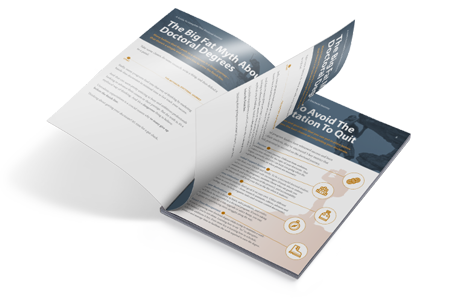
Free Guide: How to Complete Your Doctoral Journey
Discover common pitfalls and the 5 key metrics that will help you finish your doctorate degree.
Transfer Credit
Get credit for the expertise you already have - whether that’s through previous doctoral coursework or additional graduate credits as part of a master’s degree. At Franklin, our doctorates are designed to accept up to half the required credits - and while most students transfer less than the maximum, 35% of students successfully transfer credit toward a doctoral degree.
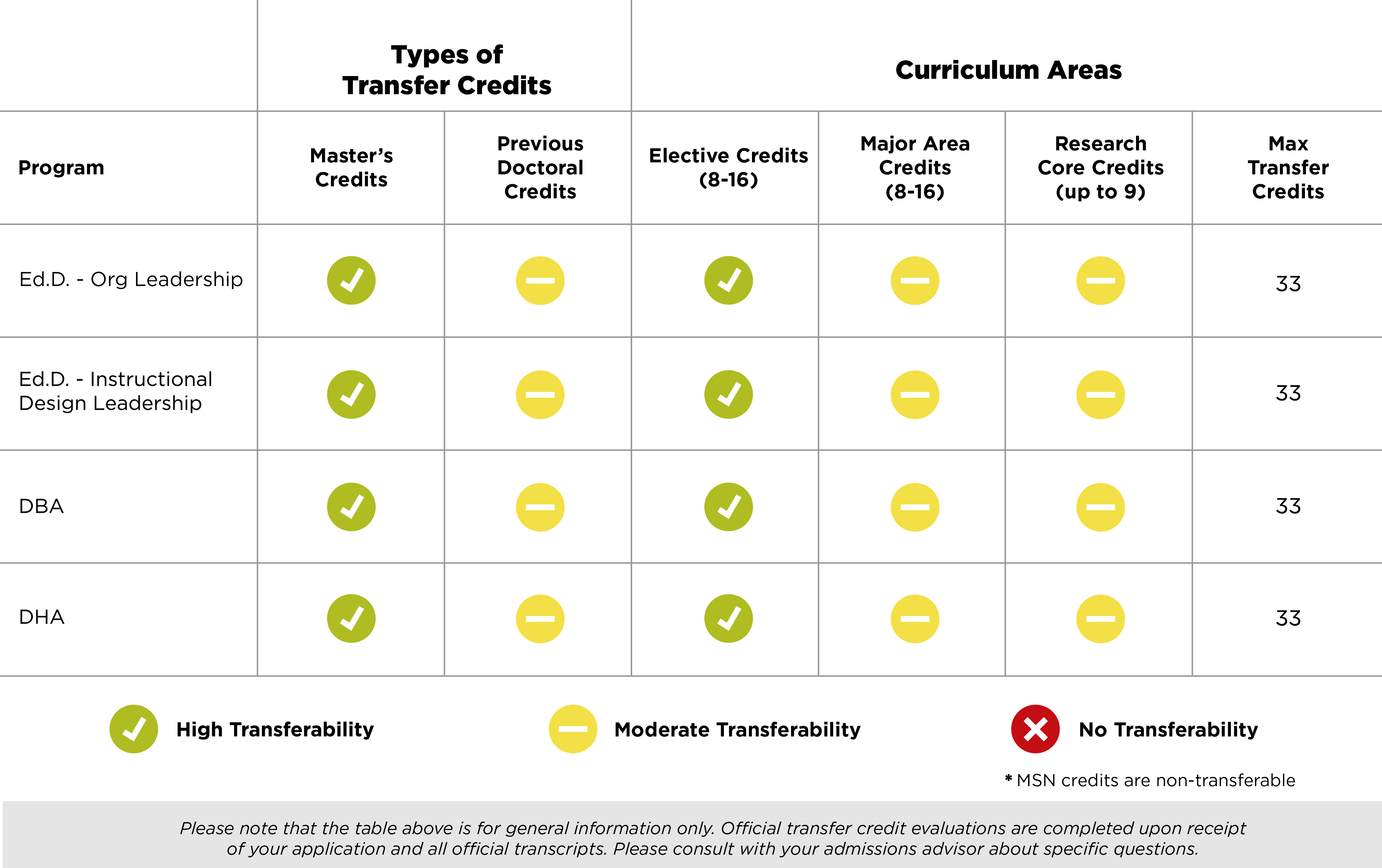
Transferring Credit Frequently Asked Questions
Elective course requirements are the most likely to be satisfied with previously earned doctoral or master’s level credit. Students are also occasionally able to transfer in major area courses, however, course outcomes must match 75% of the Franklin course to receive credit.
Our qualified transfer credit department, under guidance from our faculty and disciplinary experts, reviews course information. This team makes its decision based on course title, course description and course learning outcomes from the course(s) you have completed. On occasion, we will request a course syllabus, if one is available, so we may determine if the course you have completed adequately meets the preparation needs for successfully completing the dissertation.
Yes. In addition to meeting Franklin’s 34-credit residency requirement, the number of doctoral credits that must be taken through Franklin, there are several courses/types of courses for which we cannot accept transfer credit. By requiring that the courses/course areas below are taken at Franklin, we can be certain that you meet curriculum outcomes, exhibit proficiency within our courses, and possess a mastery of research methods and study design. Each of these components is critical to successful research preparation and dissertation completion. These courses are:
- Two introductory courses in writing and research
- At least half of the major area courses
- Intermediate and advanced elective research core courses
- All the dissertation work
Complete Your Coursework
Working with your graduate academic advisor, you’ll create a personalized plan to complete your Research Core, Major Area, Elective and - if applicable - Focus Area courses. In addition to a program chair, each program has a designated faculty advisor who can answer questions and address concerns from your first term through candidacy.
The goal of doctoral coursework is to prepare you for your dissertation. In addition to diving deeper into your discipline, you’ll also:
- Sharpen your critical thinking skills to analyze scholarly materials
- Gain necessary skills to conduct your own research
- Learn how to provide robust answers to questions that matter to you
- Formulate a process for completing a large-scale project
Coursework Frequently Asked Questions
The length of time it takes to complete the coursework phase of a doctoral program varies by university and program. However, students enrolled in Franklin University’s applied programs (DBA, DHA and Ed.D.) can complete the coursework phase in as few as two years.
Yes. The Research Core courses are required for all students seeking the DHA, DBA and the Ed.D. in Organizational Leadership or Instructional Design Leadership at Franklin. Research Core courses provide students with the knowledge and skills they need to be successful in their dissertation including writing, research, statistics, and qualitative and quantitative methods.
Take Your Comprehensive Exam
Intended to enable you to prove mastery within your discipline, comprehensive exams mark the end of coursework and are your last hurdle before you can begin work, in earnest, on your dissertation. To help with this transition, you’ll participate in a workshop held by your faculty advisor to prepare you for candidacy. The workshop includes information on the comprehensive exam, as well as tips on assembling your dissertation committee, which needs to be in place four weeks prior to your comprehensive exam.
Your dissertation committee plays an important role that begins after you pass the comprehensive exam and culminates with the dissertation defense. The three-member committee consists of a chair, who you’ll choose. A methodologist and a reviewer, from your discipline, will be assigned by the Office of Doctoral Studies.
A live exam-prep session is held with a doctoral program chair, who can answer your questions and set expectations for the exam. In addition, the Doctoral Student Association, a student-led, faculty-supported organization, also organizes a meeting each term between students who have passed their comprehensive exams and students who are about to take the exams. This provides moral support and further eases exam-related anxiety.
Once your exam questions are available to you, you will have one week to complete the written exam. Your dissertation committee will determine whether you have satisfactorily completed the exam. Upon passing your comprehensive exam, you are now an official doctoral candidate.
Kelli Garza
Coordinator, Doctoral Candidacy
"You're not in this alone. Franklin offers structure support, including faculty guidance and peer guidance, to help you navigate the exam with confidence."
Comprehensive Exam Frequently Asked Questions
Students who do not pass the comprehensive exam on their first attempt may retake it during the next exam period by re-registering for the three-week course (DISS 9000). Students who need to take the exam a third time must submit a written request to the dean of Doctoral Studies. If approved by the dean and the student’s doctoral program chair, the student can attempt the exam a final time. Students who fail the comprehensive examination two times, or fail the examination three times when a third attempt was granted through appeal, are dismissed from doctoral studies at Franklin University.
Complete your Dissertation
Scary? Challenging? Rewarding? Probably, yes and absolutely! Once students pass the comprehensive exam, a meeting is held to define expectations for the dissertation including what students can expect from their committee and student responsibilities - especially as it relates to timelines and planning. The meeting is recorded and sent to all participants to use as a reference.
At Franklin, doctoral students have the option of completing an applied research dissertation or a dissertation in practice. Throughout the dissertation process, you’ll work closely with your committee chair to create a plan for completion and deadlines. In addition to actually writing your dissertation, the dissertation process includes a literature review, a research proposal, proposal presentation, IRB approval, data collection and data analysis.
To fulfill the credit hour requirement for the doctorate, you’ll enroll in the dissertation course (DISS 9100) for 1-4 credit hours every term you plan to be enrolled.
Dr. Bora Pajo
Director, Dissertation Process
"We understand the challenges of the dissertation process, which is why Franklin provides a network of support - faculty mentorship, academic resources and writing and research assistance, to help you succeed."

For working professionals pursuing doctoral degrees, Franklin University’s No-Fear Dissertation® unites people, processes and resources to provide support and guidance that enables confident program completion. Unlike other online programs, Franklin’s applied doctorate programs are designed to minimize common barriers to completion.
Completing Your Dissertation Frequently Asked Questions
First and foremost, since you will be devoting a lot of time to this project, the topic should interest you. It also must align with your long-term professional goals and meet your program’s academic requirements. You should also conduct a literature review to see what is already known and where gaps exist. In brainstorming various options, consider how feasible it will be to get the necessary data or conduct appropriate research. Lastly, vet your research question or hypothesis with peers or faculty members to gain insights and feedback.
The dissertation committee consists of a chair, a methodologist and a reviewer. At Franklin, you choose your chair and a methodologist and a reviewer is assigned to you. You’ll work closely with your chair, so finding one who brings the attributes you need to succeed is important. Consider faculty you’ve interacted with previously or get recommendations from other students or graduates of your program.
At Franklin, students can complete the dissertation in as little as one year. However, the time necessary to complete the dissertation varies from student to student. On average students complete the dissertation in 4-5 terms (16-20 months).
Defend Your Dissertation
Dr. Wendell Seaborne
Dean, Doctoral Studies & Academic Research
"At Franklin, 66% of our doctoral students either complete their program or are actively making progress toward graduation—a reflection of the support, structure, and mentorship built into every stage of the journey. "
Your dissertation defense is the last step in completing your doctorate. The purpose of the oral defense is to recognize your completed doctoral work and provide the opportunity for discussion and formal evaluation. During your defense, you’ll make a formal presentation of your research and findings and answer questions from your committee, as well as others in attendance.
At the conclusion of the questions, your committee will adjourn to formulate a collective opinion on the merits of your research and presentation. Once they have reached a decision, they will return with an announcement for all in attendance. The committee may approve your dissertation with or without edits. If edits are required, they will need to be and approved before completing the final steps toward publication.
If no edits are needed, a Defense + Manuscript Approval form will be generated and circulated for the necessary signatures from your committee, the program chair and the dean.
All dissertations are published on the Franklin University Scholarly Exchange (FUSE), as well as on the OhioLINK Electronic Thesis and Dissertations Center.
Defending Your Dissertation Frequently Asked Questions
Attendees to an oral defense include your dissertation committee, faculty members, other doctoral students and various members of the university community. The defense can be attended by members of the general public as well as the candidates, family, friends and colleagues.
Here Is What Our Doctoral Students Are Saying

“I didn’t really have any hesitations. I knew right away that Franklin was the school for me. I knew that a doctorate in healthcare is what I wanted from the beginning to help make an impact on the community."
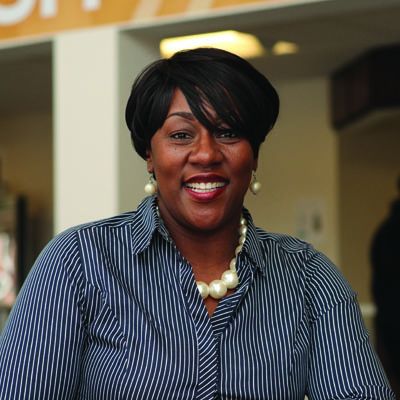
“Earning my doctorate will help me hone my leadership skills and build my knowledge within my discipline, which is nonprofit management. I want to learn how to ask tough questions of myself, my leadership team and my staff to really make my organization an even stronger one than it is today.”
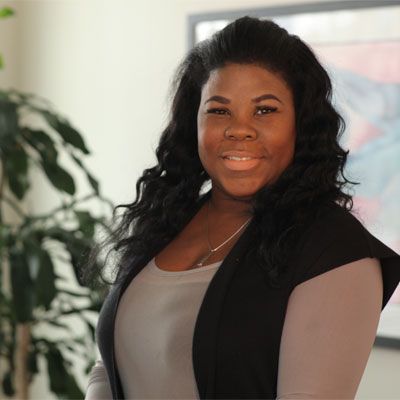
“The positive part is the faculty. They’re amazing teachers. I’ve been at other universities prior to this, but the faculty members at Franklin are what keep me coming.”
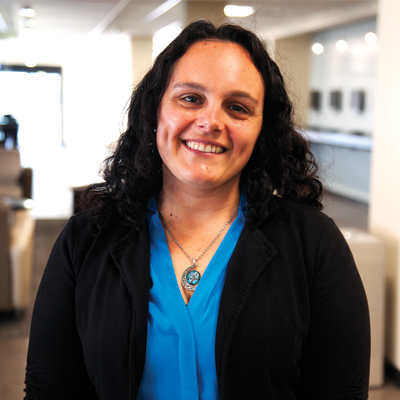
"I can't stop my life as a parent with a full-time job to pursue academics. Franklin bridges that gap for me. I still have all my responsibilities but I'm challenged in a good way. And I can see myself graduating in a couple of years with a doctorate."

“What drew me to Franklin’s program was the online coursework that enabled me to continue to work full time while progressing through the program. The flexibility allowed me to learn how I could improve my organization and implement changes in real time.”
Back to College Blog
Doctoral Programs That Accept Transfer Credit: What to Know
Doctoral Completion Programs: How to Finish Your Doctorate Degree
Setting The Record Straight: ABD (All But Dissertation) Degree Status
How Many Credit Hours Does It Take to Get a Doctorate Degree?
Short Doctoral Programs: Everything You Need to Know [In Short]
- Degrees
- Microcredentials & Certificates
- Admissions
- Tuition & Financial Aid
- Transferring Credit
- The Franklin Experience
- About Us
- FranklinWORKS Marketplace
- Safety & Security
- Policy Information
- Your Privacy Settings
- Privacy Policy
- Terms of Use
- Careers At Franklin
- Sitemap
Franklin University
201 S Grant Ave.
Columbus, OH 43215
Local: (614) 797-4700
Toll Free: (877) 341-6300
admissions@franklin.edu
Copyright 2025 Franklin University
Franklin University is accredited by the Higher Learning Commission (hlcommission.org/800.621.7440) and authorized by the Ohio Department of Higher Education.
Franklin University is committed to being an inclusive community free from all forms of discrimination and harassment.
